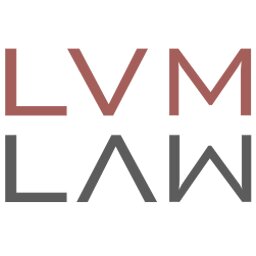Best Probate Lawyers in City Hall
Share your needs with us, get contacted by law firms.
Free. Takes 2 min.
List of the best lawyers in City Hall, Singapore
About Probate Law in City Hall, Singapore
Probate law in City Hall, Singapore, involves the legal process that occurs after a person’s death. It involves the verification of the deceased person's will, distribution of their assets and clearing of their debts. The Probate process begins when the executor, named in the Will, applies at the Probate Registry of the Family Justice Courts for a 'Grant of Probate'. This Grant is a Court order authorizing the executor to administer the deceased's assets according to their Will.
Why You May Need a Lawyer
A Probate lawyer is essential in ensuring that the deceased’s will is executed according to Singapore law. You might require a lawyer if you are the executor of the estate, as you will need to navigate the legal procedures involved in applying to the court for probate. A legal professional is also useful in resolving any disputes that may arise over the will, especially if it is contested. In the absence of a will, a lawyer can assist in applying for 'letters of administration'. They can also help mitigate any potential conflict among the beneficiaries, preventing unnecessary legal disputes.
Local Laws Overview
The key aspects of local laws that govern Probate in City Hall, Singapore include the Wills Act (Cap 352), the Intestate Succession Act (Cap 146), and the Probate and Administration Act (Cap 251). These laws define the rights and responsibilities of the executor and provide for the management of the deceased's estate. For instance, an executor is required to clear any outstanding taxes and debts of the deceased before distributing the property and the assets. The Grant of Probate must be applied within 6 months from the date of death, and an inventory of assets is required when making an application for Grant of Probate or Letters of Administration.
Frequently Asked Questions
What is the role of the executor?
The executor is responsible for carrying out the deceased's wishes as outlined in their Will. These duties include distributing assets, settling debts and taxes, and making court applications for probate where necessary.
What happens if there is no Will?
Without a Will, the estate is distributed according to the Intestate Succession Act. In this case a qualified next-of-kin must apply for letters of administration to administer the deceased's estate.
What qualifies as assets?
Assets may include property, bank accounts, stocks and shares, any insurance proceeds, and personal belongings such as jewelry and cars.
Are all assets covered in the Grant of Probate?
No, only assets that were owned by the deceased alone are covered by a Grant of Probate. Assets that are jointly owned fall outside of the estate and pass directly to the surviving co-owner.
Can a will be contested?
Yes, a will can be contested for various reasons including issues of its validity, or claims of undue influence. Legal advice should be sought as soon as possible, as there may be potential time limits to bring a claim.
Additional Resources
The Family Justice Courts website and the Singapore Statutes Online provide relevant and authoritative information regarding Probate laws in Singapore. Moreover, the Law Society of Singapore may also offer guidance and resources for those needing assistance in this area.
Next Steps
If you need legal assistance in Probate, begin by contacting a legal professional who specializes in Probate law. They can help navigate the complex process, ensure all legal requirements are met, and assist in resolving potential disputes. It is advisable to prepare all relevant documents, such as the deceased's Will, death certificate, and an inventory of their assets.
Lawzana helps you find the best lawyers and law firms in City Hall through a curated and pre-screened list of qualified legal professionals. Our platform offers rankings and detailed profiles of attorneys and law firms, allowing you to compare based on practice areas, including Probate, experience, and client feedback.
Each profile includes a description of the firm's areas of practice, client reviews, team members and partners, year of establishment, spoken languages, office locations, contact information, social media presence, and any published articles or resources. Most firms on our platform speak English and are experienced in both local and international legal matters.
Get a quote from top-rated law firms in City Hall, Singapore — quickly, securely, and without unnecessary hassle.
Disclaimer:
The information provided on this page is for general informational purposes only and does not constitute legal advice. While we strive to ensure the accuracy and relevance of the content, legal information may change over time, and interpretations of the law can vary. You should always consult with a qualified legal professional for advice specific to your situation.
We disclaim all liability for actions taken or not taken based on the content of this page. If you believe any information is incorrect or outdated, please contact us, and we will review and update it where appropriate.













